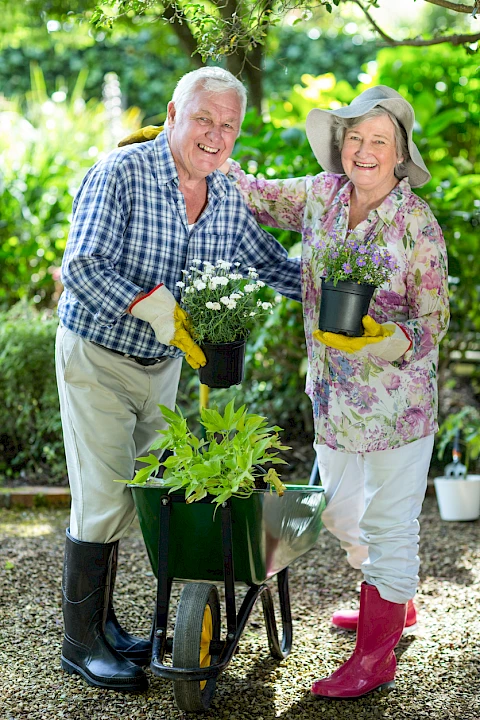
Gardening is a way to connect with nature, nurture life, and create beauty. Yet, challenges can arise as we age, making this hobby more physically demanding. But there's good news for seniors who still yearn to feel the soil between their fingers, and that's the concept of adaptive gardening. Adaptive gardening is an innovative approach that incorporates a variety of strategies and tools to make gardening accessible and enjoyable at any age. This article discusses the beauty of adaptive gardening, highlighting how seniors can continue to indulge their green thumb. We share various techniques and tips, along with the immense physical and mental benefits that this pastime can bring.
Therapeutic Benefits of Gardening for Seniors
Gardening is more than just a hobby. It's a form of therapy. Regarding the physical benefits, gardening is a low-impact exercise that promotes strength and flexibility. It encourages using all motor skills through digging, planting, and watering.
On the mental front, gardening is an excellent way to relieve stress and uplift the mood. It can bolster cognitive function by engaging the mind in problem-solving and planning. More importantly, harvesting fruits and veggies and enjoying the beautiful flowers brings a great sense of achievement and purpose, which can be invaluable for seniors' mental health.
Challenges Faced by Seniors in Gardening
However, as enriching as it is, gardening also presents particular challenges for seniors. One may face issues related to mobility or endurance, making it challenging to maintain a traditional garden. Conditions like arthritis and back pain can also make gardening a problematic task.
Adaptive Gardening Techniques
With adaptive gardening techniques, you can overcome challenges:
- Raised beds, for instance, are an ideal choice for seniors. These structures lift the gardening surface above ground level, reducing the need for bending or kneeling. Raised beds also allow for better control over the soil, making it easier to manage weeds and pests.
- Next up is the idea of vertical gardens. These gardens grow upwards, reducing the ground-level work involved. You can manage these gardens standing up, offering huge relief for those with mobility issues.
- Ergonomic tools also work great for seniors. These specially designed tools minimize strain on joints, with features like padded handles for comfort and easy grip. They will make gardening a breeze despite conditions like arthritis.
Tips for Senior Gardeners
When planning your adaptive gardening strategies, consider these suggestions:
- For seniors venturing into adaptive gardening, it's crucial to start small. It's okay to begin with a small bed or a few planters, which are easier to manage initially.
- Choosing the right plants is another vital aspect. Opt for sturdy, disease-resistant, low-maintenance plants that don't require too much attention or pruning.
- While gardening, remember to take breaks. Overexertion can lead to fatigue or injury, so you must pace yourself and hydrate regularly.
- Safety is paramount in the garden. Make sure the pathways are free of tools and debris to prevent falls. Have a sturdy chair or stool for resting.
We're Here to Help
So, while it's true that age can bring specific physical challenges, it shouldn't mean giving up on the hobbies you love. With adaptive gardening, seniors can continue their rendezvous with nature, reaping the physical and mental benefits that come with it.
If you reside in North Port, Venice, Punta Gorda, Osprey, or Port Charlotte and could benefit from more support and resources, don't hesitate to contact us at Senior Helpers Venice. We would love to discuss our services for seniors and their caregivers, such as Personal Care and Respite Care.